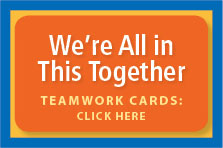The 10 Personas of an Effective Brainstorm Facilitator

Allow me to make a wild guess. You have participated in more than a few brainstorm sessions in your life. Yes?
And allow me to make another wild guess. Many of those sessions left you feeling underwhelmed, over-caffeinated, disappointed, disengaged, and doubtful that much of ANYTHING was ever going to happen as a result of your participation. Yes, again? I thought so.
There's a ton of reasons why most brainstorming sessions under-deliver, but the main reason -- the Mount Olympus of reasons (drum roll, please....) is the brainstorm facilitator. Armed with a short list of ground rules, a flipchart marker, and a muffin, most brainstorm facilitators miss the mark completely.
The reason has less to do with their process, tools, and techniques than it does with their inability to adapt to what's happening, real-time, in the room. In an all-too-professional attempt to be one-pointed, they end up being one-dimensional, missing out on a host of in-the-moment opportunities to spark the ever-mutating, collective genius of the group.
If only our well-intentioned brainstorm facilitators could abide by the words of Walt Whitman, when he confessed that he "contained multitudes."
Translation? If you or anyone you know is going to lead a diverse group of time-crunched, opinionated, multi-tracking, people through a process of originating breakthrough ideas, DON'T BE A ONE TRICK PONY! Be a multitude -- or, at the very least, be multi-faceted. Let it rip. Hang ten. Pull out the stops.
Use your right brain and your left. Let all the cats out of the proverbial bag -- and by so doing, exponentially increase your chances of sparking brainpower, brilliance, and beyond-the-obvious ideas.
OK. Enough bloggy pep talk. Let's get down to business. Take a few minutes now to rate yourself, on a scale of 1-10, for how skillful you are at embodying the following personas of a high flying brainstorm facilitator. Then tune into your biggest strength and ask yourself how you can amplify that quality. Then identify your biggest weakness and figure out how you can improve in that arena.

1.CONDUCTOR
A skilled brainstorm facilitator knows how to orchestrate powerfully creative output from a seemingly dissonant group of people. In the conductor mode, the facilitator includes everyone, evokes even the subtlest contributions from the least experienced participant, and demonstrates their commitment to the whole by offering timely feedback to anyone who "gets lost in their own song."
2.ALCHEMIST
A good brainstorm facilitator is able to transmute lead into gold -- or in modern terms -- knows how to help people "get the lead out." This talent requires an element of wizardry -- the ability to see without looking, feel without touching, and intuitively know that within each brainstormer lives a hidden genius just waiting to get out.
3.DANCER
Light on their feet, brainstorm facilitators move gracefully through the process of sparking new ideas. Able to go from the cha-cha to the polka to the whirling dervish spinning of a brainstorm group on fire, savvy facilitators take bold steps when necessary, even when there is no visible ground underfoot. "The path is made by walking on it," is their motto.
4. MAD SCIENTIST
Skillful brainstorm facilitators are bold experimenters, often taking on the crazed (but grandfatherly) look of an Einstein in heat. While respecting the realm of logic and the rational (the ground upon which most scientists build their homes), the enlightened facilitator is willing to throw it all out the window in the hope of triggering a "happy accident" or a quantum leap of thought. Indeed, it is often these discontinuous non-linear moments that produce the kind of breakthroughs that logic can only describe, never elicit itself.

5.DIAMOND CUTTER
Fully recognizing the precious gem of the human imagination (as well as the delicacy required to set it free), the high octave brainstorm facilitator is a craftsman (or craftswoman) par excellence -- focused, precise, and dedicated. Able to get to the heart of the matter in a single stroke without leaving anything or anyone damaged in the process.
6. ACTOR
Brainstorm facilitators are "on stage" whether they like it or not. All eyes are upon them, as well as all the potential critical reviews humanly possible. More often than not, the facilitator's "audience" will only be moved to act (perchance to dream) if they believe the facilitator is completely into his or her role. If the audience does not suspend this kind of disbelief, the play will close early and everyone will be praying for a fire drill or wishing they were back home eating a grilled cheese sandwich.
7.ENVIRONMENTALIST
Brainstorm facilitators are the original recyclers. In their relentless pursuit of possibility, they look for value in places other people see as useless. To the facilitator in full mojo mode, "bad ideas" aren't always bad, only curious indicators that something of untapped value is lurking nearby.
8. OFFICER OF THE LAW
One of the brainstorm facilitator's most important jobs is to enforce "law and order" once the group gets roaring down the open highway of the imagination. This is a fine art -- for in this territory speeding is encouraged, as is running red lights, jaywalking, and occasionally breaking and entering. Just as thieves have their code of honor, however, so too should brainstormers. Indeed, it is the facilitator's task to keep this code intact -- a task made infinitely easier by the ritual declaration of ground rules at the start of a session.''
9.SERVANT
Some brainstorm facilitators, intoxicated by the group energy and their own newly stimulated imagination, use their position as a way to foist their ideas on others -- or worse, manipulate the group into their way of thinking. Oops! Ouch! Aargh! Brainstorm facilitating is a service, not a personal platform. It is supposed to be a selfless act that enables others to arrive at their own solutions, no matter how different they may be from the facilitator's.
10. STAND-UP COMIC
Humor is one of the brainstorm facilitator's most important tools. It dissolves boundaries, activates the right brain, helps participants get unstuck, and shifts perspective just enough to help everyone open their eyes to new ways of seeing. Trained facilitators are always on the lookout for humorous responses. They know that humor often signals some of the most promising ideas, and that giggles, guffaws, and laughable side-talk frequently indicate a rich vein of possibility to explore. Humor also makes the facilitator much more "likable" which makes the group they are facilitating more amenable to their direction. Ever wonder why the words "Aha!" and "Ha-Ha" are so similar?
The book from which the article was excerpted
Idea Champions
Our clients
What they say
Our brainstorm training
Post a comment
Thanks for signing in, . Now you can comment. (sign out)
(If you haven't left a comment here before, you may need to be approved by the site owner before your comment will appear. Until then, it won't appear on the entry. Thanks for waiting.)














